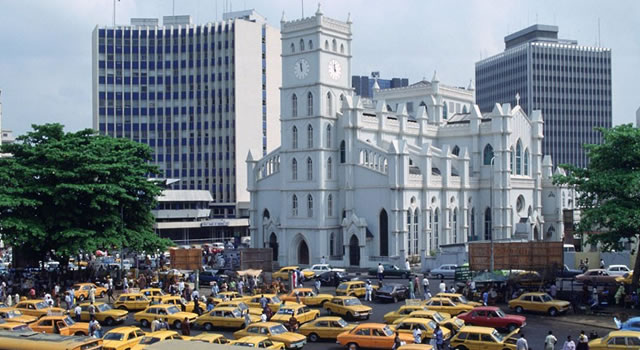Entertainment
History behind the names of 10 popular places in Lagos

The bustling city of Lagos which sprawls inland from the Gulf of Guinea is a visitor’s delight especially on the island which is known for its beach resorts, commerce and vibrant nightlife.
With an estimated population at 21 million, Lagos is ranked as one of the largest cities in Africa with sprawling towns and places which did not just spring up from nowhere.
Most areas in Lagos have their original names dating back to troubled times but such places have always been part of a larger set-up, while the names of such places have a rich history behind them.
Listed below are 10 popular places in Lagos and the origin of the names of such places.
1. Ojota
Ojota used to be a military settlement in the late 18th century and soldiers practised their shooting there. The area had several gun firing spots and became known as “Oju Ota” in Yoruba which means “Bullet spots”. It later metamorphosed into Ojota which it is called now.
2. Abule Egba
This area is on the outskirts of Lagos and got its name from the early settlers who were Egba people from Abeokuta. The area was first called “Abule awon egba” in Yoruba, which means “Village of Egba people”. It later became “Abule Egba”.
3. Apongbon
Apongbon is one of Lagos’ most popular markets, and it’s also quite close to the popular Oke-Arin market. It got its name from the then acting governor of the Lagos colony, William McCoskry, who had a Red Beard. The Yorubas who couldn’t pronounce the colonial governor’s name decided to describe him by his red beard and started calling him “Oyinbo to pon ni igbon” meaning a red-bearded man. It later became Apongbon.
4. Magodo
Magodo is now a posh area, but in the past, it used to be sacred land. The residents had a lot of taboos and one of them was to avoid using mortars and pestles, “Ma gun odo” which means “Don’t pound it”. It later became ‘Magodo
5. Epetedo
Epe is named after the early settlers who were Epe traders. The area became dominated by the Epes and they still trade there until today.
Read also: 7 ways to tell if a guy is flirting with you
6. Ebute-Metta
Ebute-Metta is one of the earliest harbour docks where British ships berthed at. It was a hub for trade and commerce in colonial times. Ebute-Metta is a fusion of the words “Ebute” which means the seaside in Yoruba, and “Metta” which means three.
7. Broad Street
Broad Street used to be one of the longest and widest streets in the city. It got its name from its broadness.
8. Agidingbi
The British Naval forces invaded Lagos in 1885 under the pretext of stopping slavery and human sacrifice. The noise their canon made was really loud, and the sound was heard round the streets of Lagos Island. The people described the sound as “A gb din gbinnn” which means a loud ground-breaking noise. The name Agidingbi was borne out of this.
9. Victoria Island
Victoria Island was also a major hub for commerce and British ships berthed there often. It’s named after Queen Victoria of England who was Queen from 1837-1901.
10. Ikeja
Ikeja, the capital of Lagos, is actually an abbreviation for “Ikorodu And Epe Joint Administration”. It was coined by the colonial masters for ease of administration
RipplesNigeria… without borders, without fears
Click here to join the Ripples Nigeria WhatsApp group for latest updates.
Join the conversation
Support Ripples Nigeria, hold up solutions journalism
Balanced, fearless journalism driven by data comes at huge financial costs.
As a media platform, we hold leadership accountable and will not trade the right to press freedom and free speech for a piece of cake.
If you like what we do, and are ready to uphold solutions journalism, kindly donate to the Ripples Nigeria cause.
Your support would help to ensure that citizens and institutions continue to have free access to credible and reliable information for societal development.
























